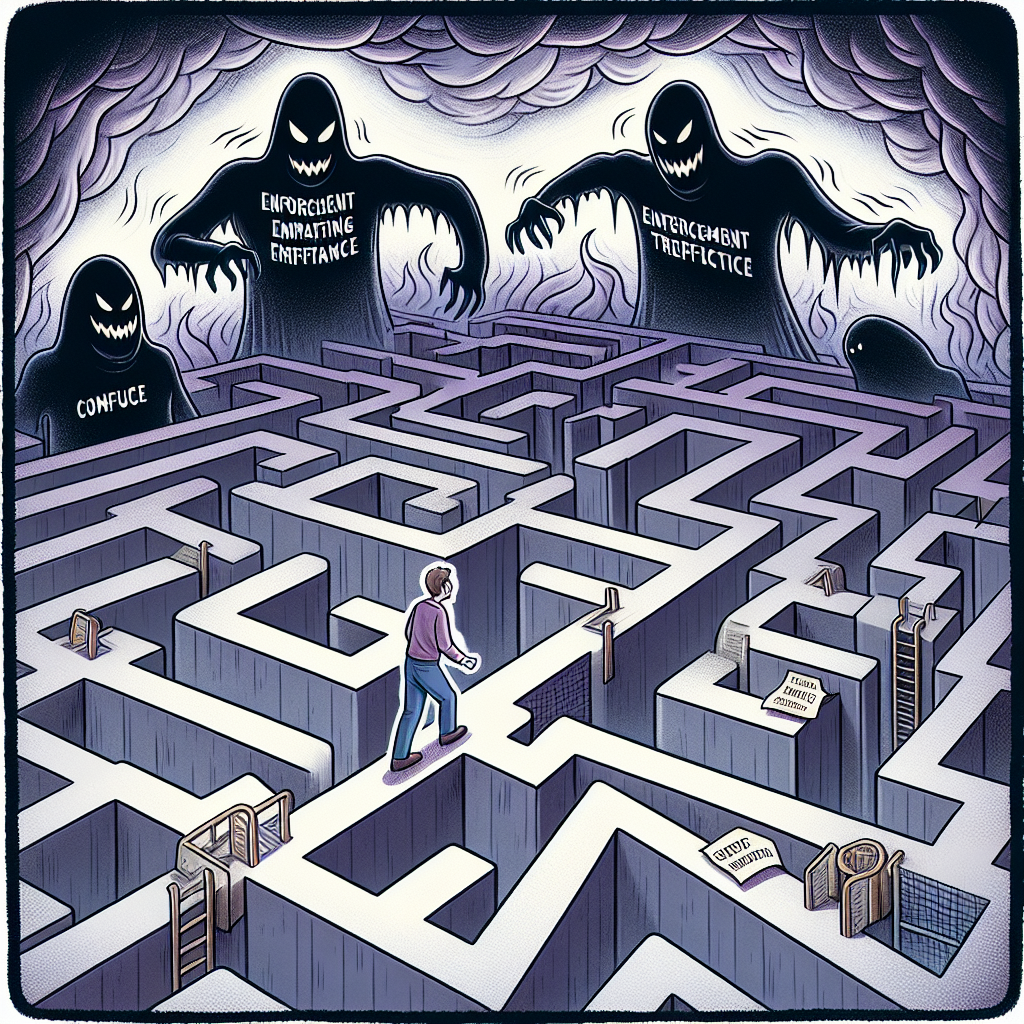Navigating Compliance Pitfalls: Avoiding the ‘Enforcement Trifecta’
In today’s complex regulatory environment, businesses face a myriad of compliance challenges. Among these, the ‘Enforcement Trifecta’—a term used to describe the simultaneous threat of regulatory, civil, and criminal enforcement actions—poses a significant risk. Navigating these pitfalls requires a strategic approach to compliance management. This article explores the components of the Enforcement Trifecta, provides insights into avoiding these pitfalls, and offers practical strategies for businesses to safeguard against potential enforcement actions.
Understanding the Enforcement Trifecta
The Enforcement Trifecta refers to the convergence of three types of enforcement actions that can be levied against a business:
- Regulatory Enforcement: Actions taken by government agencies to ensure compliance with laws and regulations.
- Civil Enforcement: Lawsuits filed by individuals or entities seeking damages or remedies for alleged violations.
- Criminal Enforcement: Prosecution by the state for violations deemed criminal in nature, potentially leading to fines or imprisonment.
Each of these enforcement actions carries its own set of challenges and consequences. When they occur simultaneously, the impact on a business can be devastating, leading to financial losses, reputational damage, and operational disruptions.
Case Studies: Lessons from the Field
Several high-profile cases illustrate the dangers of the Enforcement Trifecta. For instance, the Volkswagen emissions scandal involved regulatory fines, civil lawsuits, and criminal charges. The company faced billions in penalties and a significant hit to its reputation. Similarly, the Wells Fargo account fraud scandal resulted in regulatory penalties, civil settlements, and criminal investigations, highlighting the multifaceted risks of non-compliance.
Strategies for Avoiding Compliance Pitfalls
To avoid the Enforcement Trifecta, businesses must adopt a proactive approach to compliance. Here are some strategies to consider:
- Comprehensive Risk Assessment: Regularly conduct risk assessments to identify potential compliance vulnerabilities. This involves evaluating internal processes, external regulations, and industry-specific risks.
- Robust Compliance Programs: Develop and implement comprehensive compliance programs that include clear policies, procedures, and training for employees. Ensure these programs are regularly updated to reflect changes in regulations.
- Effective Internal Controls: Establish strong internal controls to monitor compliance and detect potential violations early. This includes regular audits, whistleblower programs, and a culture of transparency.
- Engagement with Regulators: Maintain open lines of communication with regulatory bodies. Proactively address any concerns and demonstrate a commitment to compliance.
- Legal and Compliance Expertise: Invest in legal and compliance expertise to navigate complex regulatory landscapes. This includes hiring experienced professionals and leveraging external consultants when necessary.
The Role of Technology in Compliance
Technology plays a crucial role in modern compliance management. Advanced analytics, artificial intelligence, and machine learning can help businesses identify patterns and anomalies that may indicate compliance issues. Additionally, automated compliance tools can streamline processes, reduce human error, and ensure timely reporting.
Conclusion: Safeguarding Against the Enforcement Trifecta
In conclusion, the Enforcement Trifecta represents a significant threat to businesses across industries. By understanding the components of this trifecta and implementing robust compliance strategies, businesses can mitigate risks and protect themselves from potential enforcement actions. Key takeaways include the importance of comprehensive risk assessments, robust compliance programs, effective internal controls, proactive engagement with regulators, and leveraging technology. By prioritizing compliance, businesses can not only avoid the pitfalls of the Enforcement Trifecta but also build a strong foundation for sustainable growth and success.



